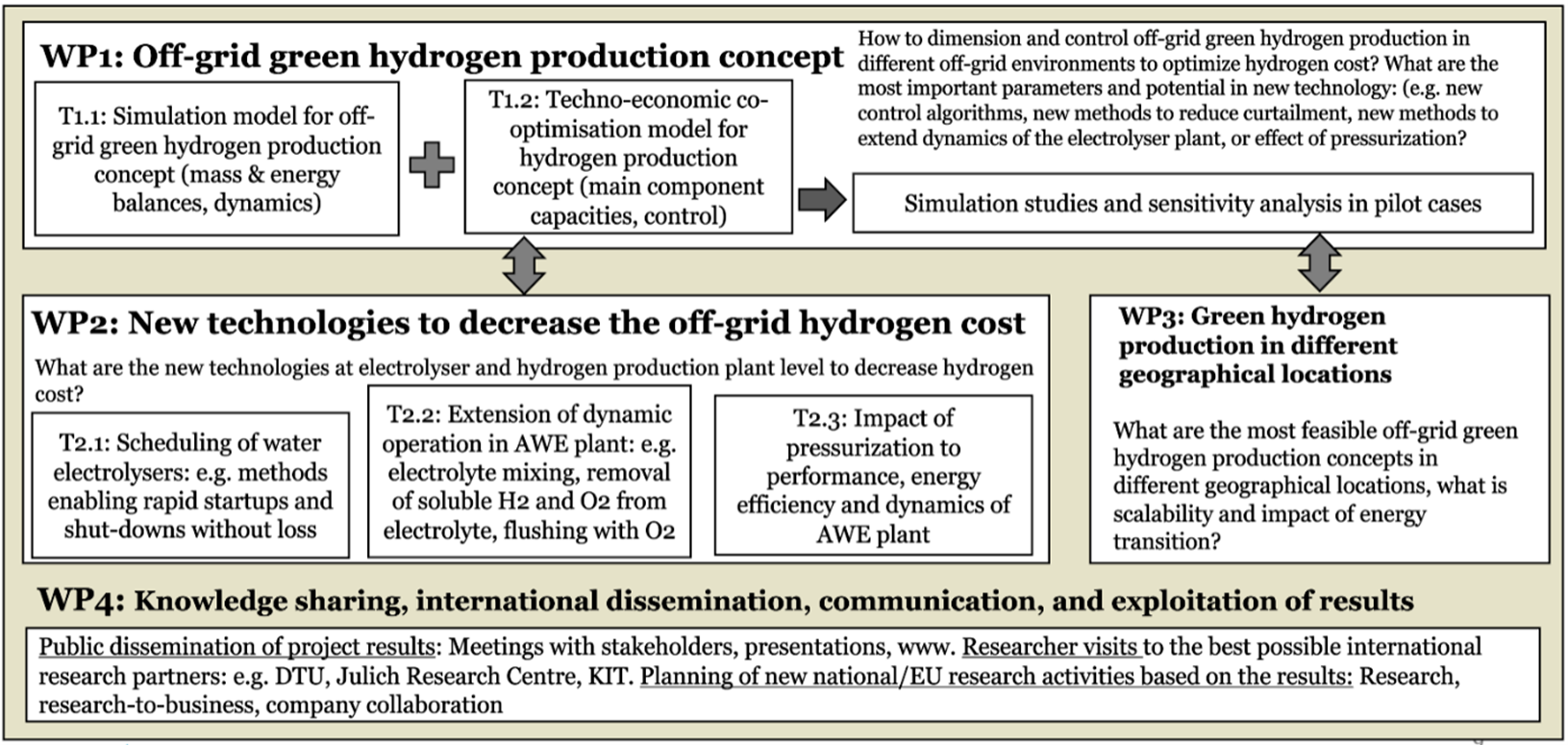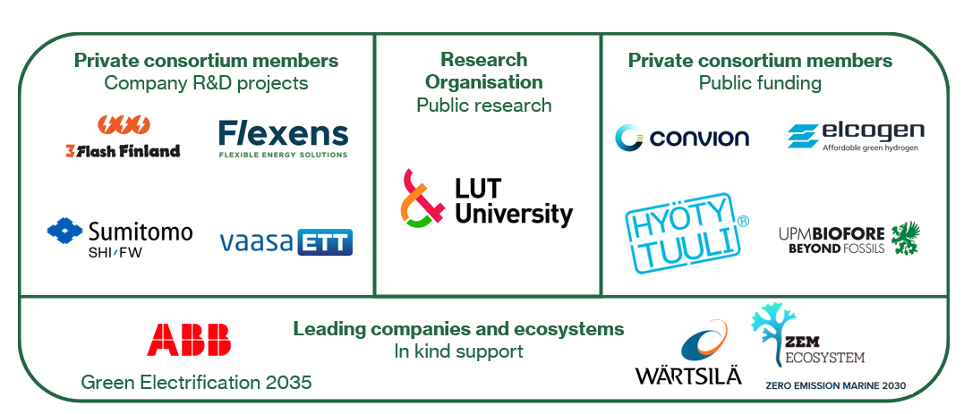OffgridH2 co-innovation project consortium, which focuses on the Off-grid electrolyser plant optimisation, has received a positive funding decision from Business Finland. CLIC Innovation coordinated the development of the project consortium as well as the Business Finland co-innovation funding application for the consortium. The proposal was submitted in April 2023. The total budget of the project is 3.7ME, and Business Finland is funding 2.1ME.

Figure 1 Work packages in OffgridH2
OffgridH2
OffgridH2 aims to understand the system parameters needed to reach the minimum cost of baseload hydrogen (LCOH) in off-grid hydrogen production environments. Furthermore, the project will explore technological solutions in water electrolysis plants and hydrogen storage to reduce LCOH. Additionally, the project will study pilot cases to identify the most feasible geographical locations to produce off-grid green hydrogen.

Figure 2 OffgridH2 project consortium members
The consortium consists of a public research project led by LUT and private R&D projects led by Sumitomo SHI FW, Flexens, 3Flash and Vaasa ETT. In addition, UPM Energy, Elcogen, Convion and Suomen Hyötytuuli are financially supporting the public research project. The project has in-kind support from two leading ecosystems funded by Business Finland, Green Electrification 2035, led by ABB and Zero Emission Marine, led by Wärtsilä.
This co-innovation project aims to introduce new technologies and ideas which will improve the hydrogen yield of electrolyser plants and the overall efficiency of electrolysers attached to off-grid renewable electricity production units. By optimising the off-grid electrolysers, the overall efficiency and cost-effectiveness of hydrogen production can be increased. This lowers the cost of green hydrogen and increases its production volume, offering better competitiveness for energy and chemical industries using and refining the hydrogen. By improving the availability of low-cost green hydrogen, attractive new business opportunities and significant market potential can be created in the whole hydrogen value chain for Finnish companies.
By making the electrolysers more efficient and capable of utilising variable load conditions, quicker and more feasible implementation of large-scale green hydrogen production can be achieved. Hence, the optimisation of off-grid electrolyser plants will reduce emitted greenhouse gases, help preserve raw materials and greatly reduce the environmental impacts of industries, transportation, and residential heating.
Our role
VaasaETT aims to enhance an in-house built economic model for evaluating the competitiveness of Power to Hydrogen solutions, including electrical storage and renewable energy connections. It will enable comparative analysis with products like ammonia and methanol, optimizing cost and revenue streams, dispatch schedules, and potential grid flexibility services. The project targets a holistic view of optimized costs and revenues across different locations and technologies, benefiting various energy sector stakeholders.
If you have any questions regarding the OffgridH2 project, kindly contact:
Jero Ahola, LUT University, jero.ahola@lut.fi
Merie Kannampuzha, CLIC Innovation, merie.kannampuzha@clicinnovation.fi



 0
0
